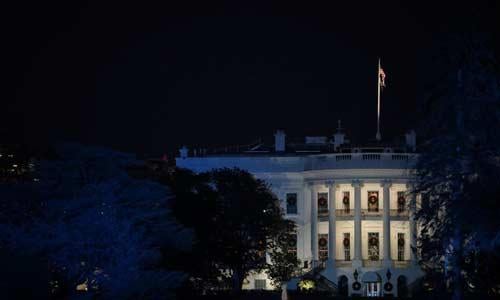The role for nuclear weapons in US security policy has changed dramatically since the end of the Cold War. While the nuclear threat is still the greatest danger to the United States, a deliberate, massive Russian attack is almost unthinkable today. A limited, accidental but nonetheless disastrous attack from Russian nuclear missile forces on high alert is more plausible than before. Most likely, however, is a boat- or truck-delivered attack by a country or terrorist group using stolen or purchased nuclear weapons or materials.
To address these threats, the United States should adopt a new nuclear policy that directly enhances US national security and promotes and strengthens the nonproliferation regime.
The House Policy Committee's Subcommittee on National Security and Foreign Affairs recently published a proposal for US nuclear policy titled Differentiation and Defense: An Agenda for the Nuclear Weapons Program (February 2003). On the whole, it proposes a dangerous, aggressive, and counterproductive policy that would increase the likelihood of nuclear proliferation while doing little to increase US security. (Note that, despite its nonpartisan name, the House Policy Committee is a Republican Party organization.)
Toward Nuclear Sanity provides a response to key proposals and concepts in Differentiation and Defense. Some sections, on Homeland Defense and Preventing Proliferation, are largely non-controversial and not included here, but most sections receive a detailed response. In the text, italicized, boldfaced sections are excerpts from Differentiation and Defense, while our commentary appears in plain text.
Toward Nuclear Sanity does not provide a comprehensive proposal for US nuclear policy, but that policy should undoubtedly include:
- As a priority goal for the United States, a clear commitment to and progress toward the complete elimination of nuclear weapons, including bringing all the current nuclear-armed states into a nuclear disarmament regime.
- An expanded program to reduce the likelihood of nuclear weapons and materials falling into terrorist hands, focused on bolstering efforts to account for, control, and reduce those weapons and materials.
- A rejection of rapid-launch options, changing deployment policies to supply survivable launch options within hours and days rather than minutes.
- A commitment to the indefinite extension of the current nuclear testing moratorium and to the implementation of the Comprehensive Nuclear Test Ban Treaty.
Toward Nuclear Sanity was written by:
- Jim Bridgman, program director, Alliance for Nuclear Accountability, (202) 544-0217
- Martin Butcher, director, Security Program, Physicians for Social Responsibility, (202) 667-4260
- Kathryn Crandall, analyst, British American Security Information Council, (202) 347-8340
- Christine Kucia, senior analyst, Arms Control Association, (202) 463-8270
- Tracy Moavero, policy director, Peace Action Education Fund, (202) 862-9740
- Marie Rietmann, public policy director, Women's Action for New Direction, (202) 544-5055
- Scott Stedjan, associate, Friends Committee on National Legislation, (202) 547-6000
- Stephen Young, senior analyst, Union of Concerned Scientists, (202) 223-6133
- Rebecca Zimmerman, peace and environment fellow, 20/20 Vision, (202) 833-2020.
The views and analyses in this paper do not necessarily reflect those of every author and organization that participated.



